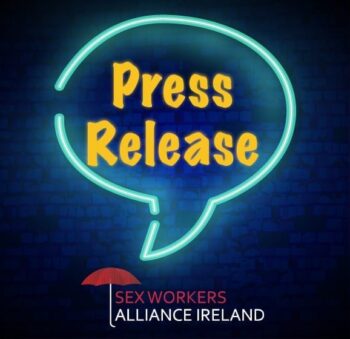
The Sex Workers Alliance Ireland (SWAI) welcomes the news that OnlyFans will not proceed with new changes in OnlyFans announced last week which would ban sexually explicit content. This reversal is due to the sex work community rallying and ensuring that the shock and fear our community felt was heard.
Aoife Bloom, board member of SWAI said “The global pandemic continues and while we are slowly reopening some sex workers are supplementing their income through online work. Throughout the pandemic the number of OnlyFans content creators increased dramatically which undoubtedly increased the profits for the shareholder immensely.”
She continued “Sex workers are familiar with exclusion from financial platforms. PayPal, which have its European headquarters in Ireland, have closed the accounts of sex workers, refused to pay out the remaining balance which amounts to stealing money, even for those who do not use the platform to be paid for sex work. GoFundMe, a popular crowdfunding site that many trans people use to raise money to pay for the surgeries they do not have access to here in Ireland, does not allow sex workers to use their platform. Our COVID hardship fund in 2020 sought to get cash straight into the hands of sex workers who really needed it and we struggled with a reliable way to deliver it. May we remind people that sex work in Ireland is not illegal, at least according to the proponents of the Nordic Model of client criminalisation in Ireland.”
“These new regulations would have been a fallout from the FOSTA SESTA laws, introduced in the United States in 2018. These laws made advertising sex work illegal which meant workers could no longer use these sites to find clients and many were forced back to their exploitative managers (pimps) or working in the street. We have seen that these third parties have contacted OnlyFans workers in the wake of the proposed changes. Stigma and marginalisation make sex workers reliant on third parties which opens them up to exploitation.”
“Reducing the income of sex workers is a core tenant of the End Demand model of client criminalisation. Many sex workers were not included in government supports which meant that over 50% of the sex workers we spoke to were unable to give up in-person work. As we have stated time and again reducing the income of sex workers does nothing to end exploitation and trafficking in the industry and in fact make sex workers less safe. Sex workers could have been forced to move away from OnlyFans into in-person work. This loss of income could have forced workers into taking risks such as not using condoms or taking on clients that they would normally turn down.”
“Despite the claims of anti-sex work organisations in Ireland and elsewhere, there is no evidence that people have been coerced into creating content. The platform allows workers to set their own time, be their own boss and avoid exploitative pornography production companies. It is clear that anti-sex work ideology is more important than mitigating risk for people working in the industry. These financial institutes claim a moral authority but continue to work with companies that are responsible for climate change, or the opioid crisis.”
“Sex workers are people, it seems we have to remind the world of this. Sex workers are excluded from financial institutions and social media platforms, even when the mantra for the past 18 months has been to stay indoors. The organisations calling for this exclusion have dark histories of religious oppression and anti-choice rhetoric, including in Ireland. Make no mistake, they will not stop at excluding sex workers, other marginalised people will be next. Where will this end?”
“Sex workers are the canaries in the coal mine for many regressive laws and regulations. Decriminalisation of sex work is the first step in ending the stigma of our work. We are entitled to work as safely as possible. Decriminalisation will not legalise exploitation or trafficking. Our current legal model is failing sex workers and has done nothing to keep us safe since its introduction.”


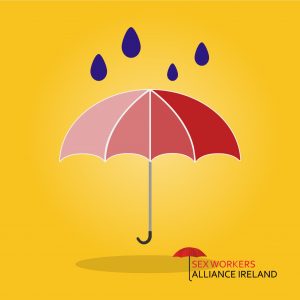 Today, 30th July is World Day Against Trafficking in Person. Ireland continues to languish in the
Today, 30th July is World Day Against Trafficking in Person. Ireland continues to languish in the 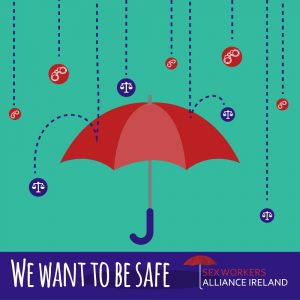

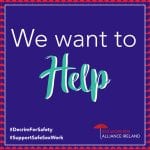 For the second year in a row Ireland languishes in the Tier 2 Watchlist of the
For the second year in a row Ireland languishes in the Tier 2 Watchlist of the 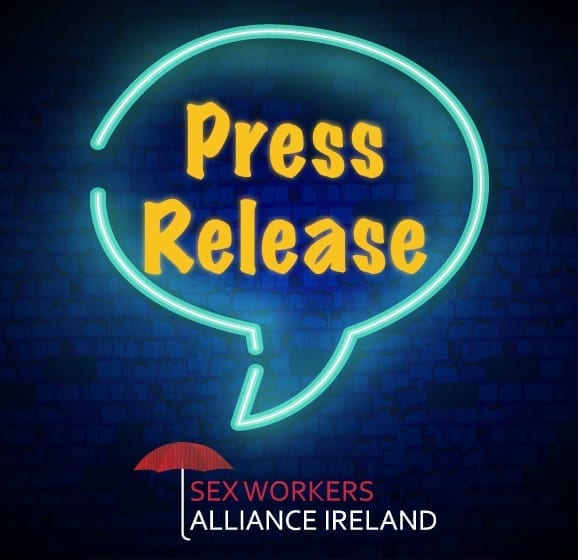
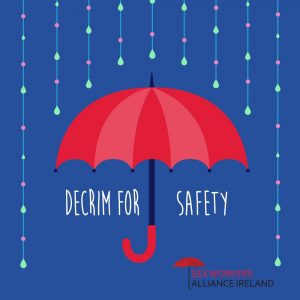 Sex Workers Alliance Ireland (SWAI) demands that the courts obey the blanket ban on deportations reinstated by the Taoiseach since Level 5 Covid restrictions began.
Sex Workers Alliance Ireland (SWAI) demands that the courts obey the blanket ban on deportations reinstated by the Taoiseach since Level 5 Covid restrictions began.